Conversations in uncertainty:
Experiences between
art, technology
and critical thinking
Interdiscipline
Interdiscipline:
- An attempt to integrate or synthesize perspectives from several disciplines.
- Solution to the relations between science and society, the development of accountability and the need to foster innovation in the knowledge economy.
- Problem-solving in response to new problems or objects that lie beyond the frame of existing disciplines.
- Practice-based cross-disciplinary collaboration that comprehends heterogeneity and openness.
There is no inherent value in openness, heterogeneity or innovation, as neither in participation or democratization.
Epistemological problems:
How can different systems of knowledge be assimilated or translated between each other?
Political problems:
- How do we question the authority of existing disciplines?
- How do we negotiate the existing hierarchy between disciplines?
- How do we challenge the notion of expertise?
- How can we situate the sites or places of interdiscipline?
Counter
-discipline
Foucault:
“'disciplines' are groups of statements that borrow their organization from scientific models, which tend to coherence and demonstrativity, which are accepted, institutionalized, transmitted, and sometimes taught as sciences”
Archeology of knowledge, p. 178
Characteristics:
- Unit of discourse: Set of propositions coherent between each other.
- Modality of speech: Who is speaking? Who is ‘qualified’ to do so? How is this discourse recognized as truth?
- Sharing of Institutional sites
Bordieu:
Field of social practices:
A field is a setting in which agents and their social positions are located. The position of each particular agent in the field is a result of interaction between the specific rules of the field, agent's habitus and agent's capital
- Habitus as disposition
- Doxa as preexisting given values and belifs
- Capital: economic, symbolic, cultural or social
Bordieu:
Revolution of disciplines:
"the ‘puzzle-solving’ activities of ‘normal science’ are based on a commonly accepted paradigm which defines, among other things, in a relatively undisputed way, what counts as a correct or incorrect solution. But in revolutionary situations the background framework which alone defines ‘correctness’ is itself in question”
Science of science and reflexivity, p.16
Latour:
"By all means, they seem to say, let us not mix up knowledge, interest, justice and power. Let us not mix up heaven and earth, the global stage and the local scene, the human and the nonhuman. 'But these imbroglios do the mixing,' you'll say, 'they weave our world together!' 'Act as if they didn't exist,' the analysts reply. They have cut the Gordian knot with a well-honed sword. The shaft is broken: on the left, they have put knowledge of things; on the right, power and human politics.”
We were never modern, p.3
INdiscipline
Ivan Illich:
Specialization as counter-productivity
Counterproductivity is the means by which a fundamentally beneficial process or arrangement is turned into a negative one. 'Once it reaches a certain threshold, the process of institutionalization becomes counterproductive'
(Tools for convivilaity, p. 15)
Vernacular knowledge
“activities of the common people when they are not motivated by ideas of exchange”, it also defines “autonomous actions, outside of the market, by means of which people satisfies everyday life necessities” (Shadow work, p. 93).
Boaventura de Sousa Santos:
Knowledge ecologies
Against the idea of universal knowledge, “At the base of knowledge ecologies is the idea that different types of knowledge are incomplete in different ways, and that awakening awareness of this reciprocal incompleteness (rather than seeking completeness ) is a precondition for achieving cognitive justice.”
Boaventura de Sousa Santos:
Translatability against the abyssal line
"Translation work is a collective intellectual and political work. It also has its pathos, an emotional dimension, because it presupposes at the same time a nonconformist attitude towards the limits of own knowledge and practice, and being willing to be surprised at the knowledge and practice of the other and learn from it, to build collaborative actions for mutual benefit.”
Boaventura de Sousa Santos:
Translatability
"What is put into communication is not necessarily the most relevant or fundamental. On the contrary, the contact areas are border areas, no man's lands, where the peripheries or the margins of knowledge and practices are the first to emerge. As translation work progresses and intercultural competence intensifies, the possibility of bringing dimensions of knowledge and acting considered more relevant to the contact areas opens up.”
Interdicipline
- Integration of disciplines
- Looks for solutions
- Fosters Innovation
- Exchange of expertise
- Dialgoue between disciplines
INdiscipline
- Recognises Reciprocal incompleteness
- Makes questions
- Challenges linearity of progress
- Revalues vernacular knowledge
- Recognices the problems of translatability
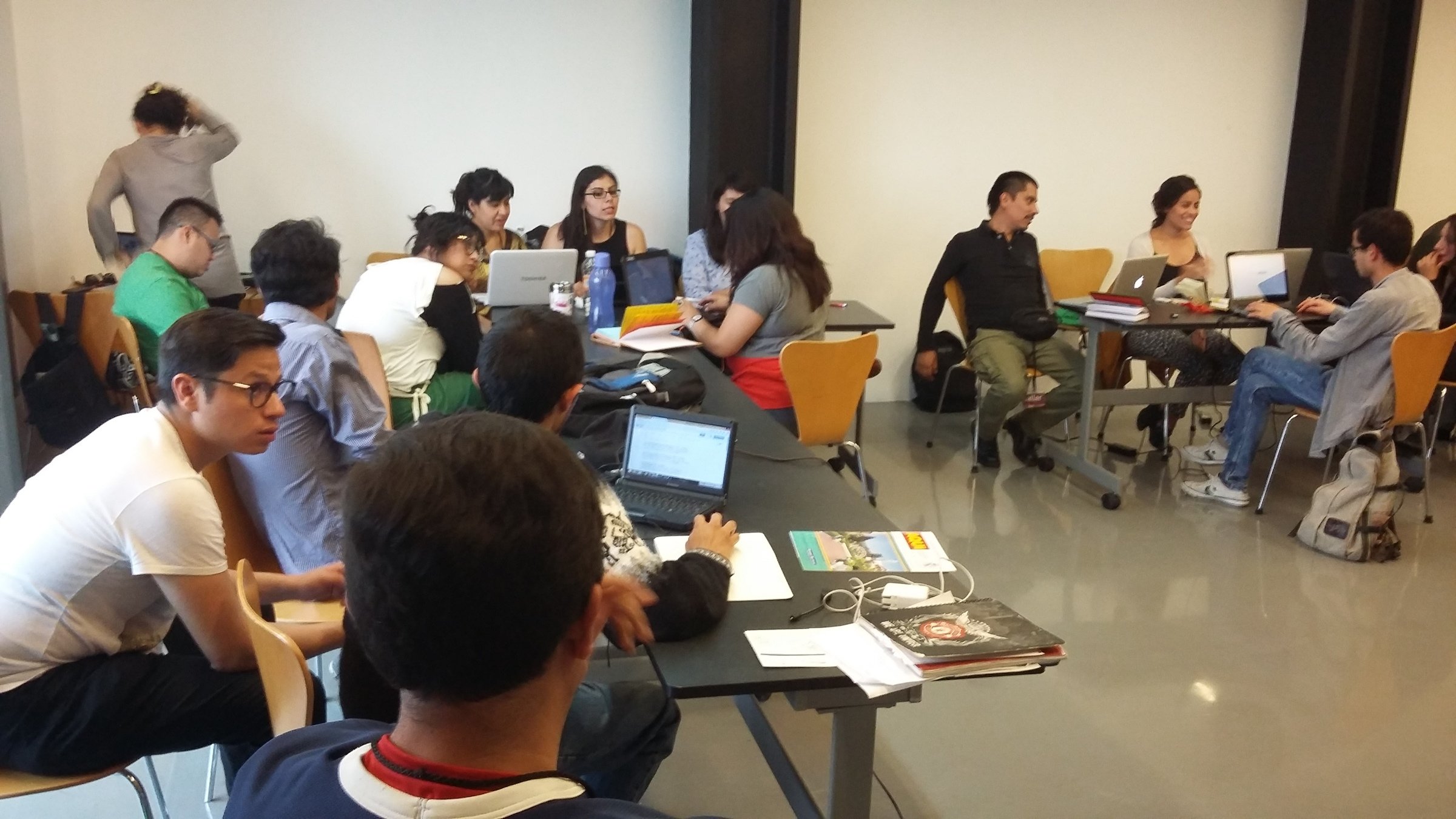
1. Develop a common vocabulary and a skill base
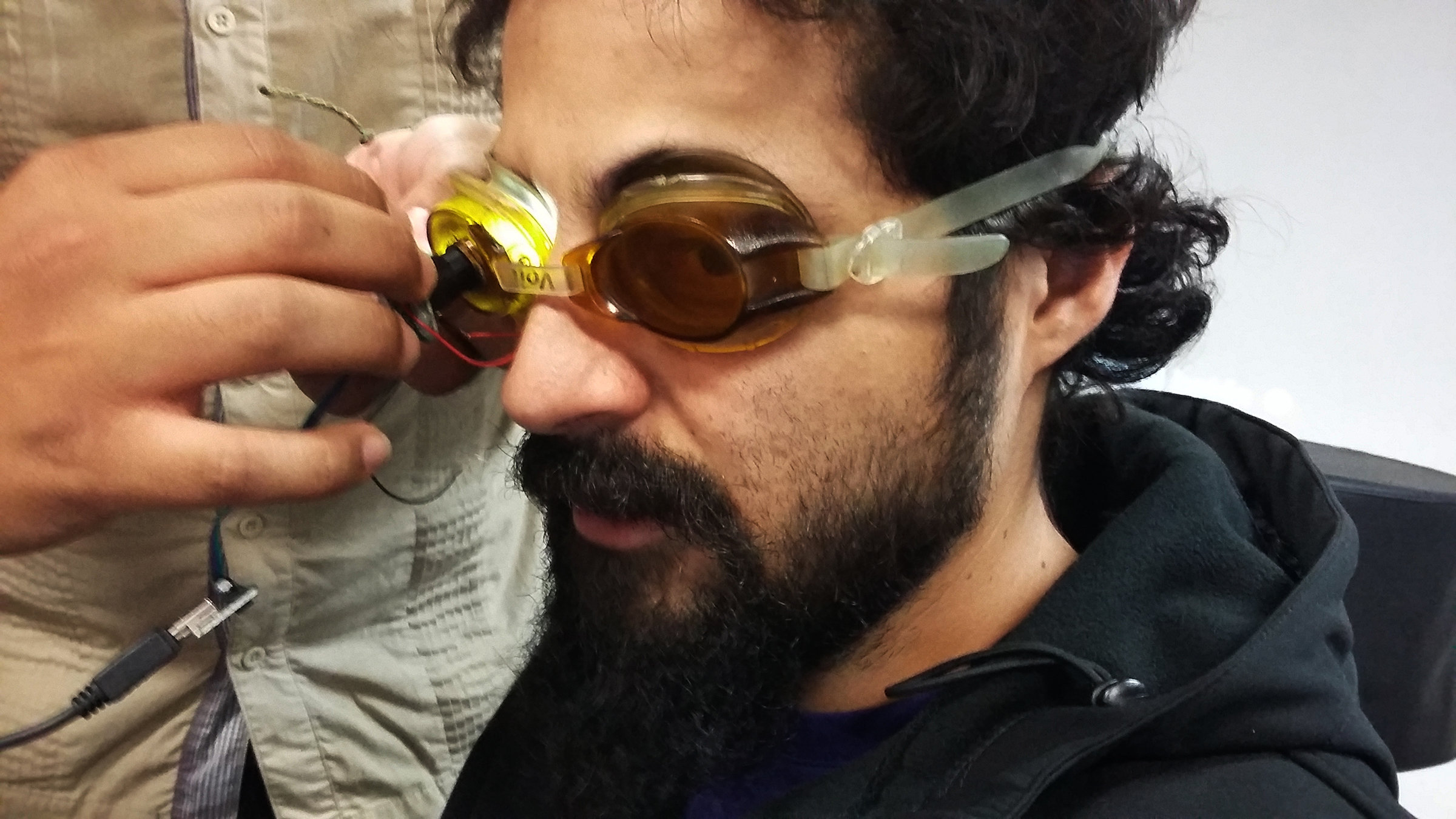
2. Do not propose solutions, seek to create interrogations
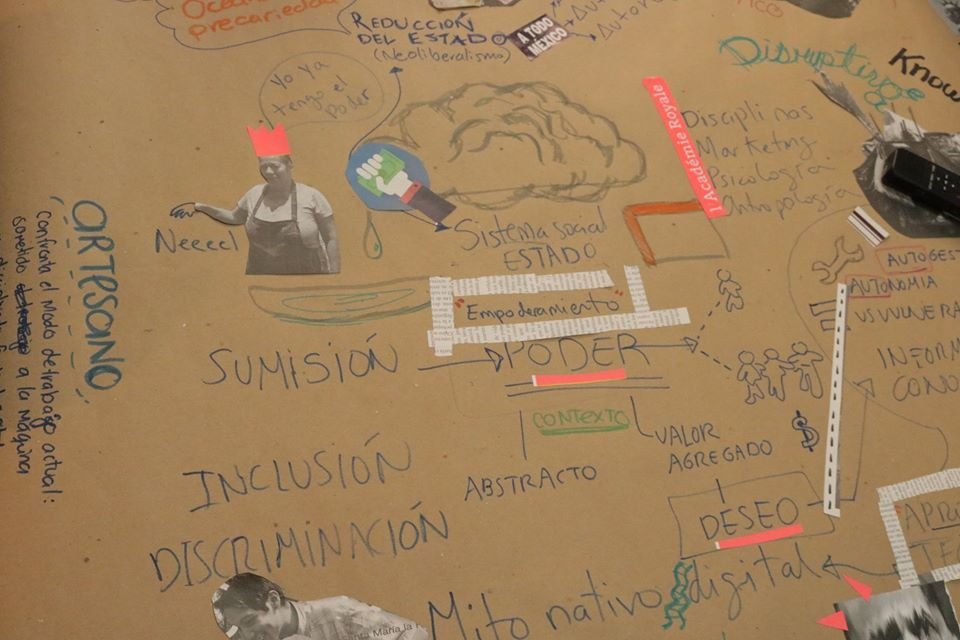
3. Problematize values, interests, and affections.
Camilo Cantor, Laboratorio Deconstruyendo el Imaginario Maker
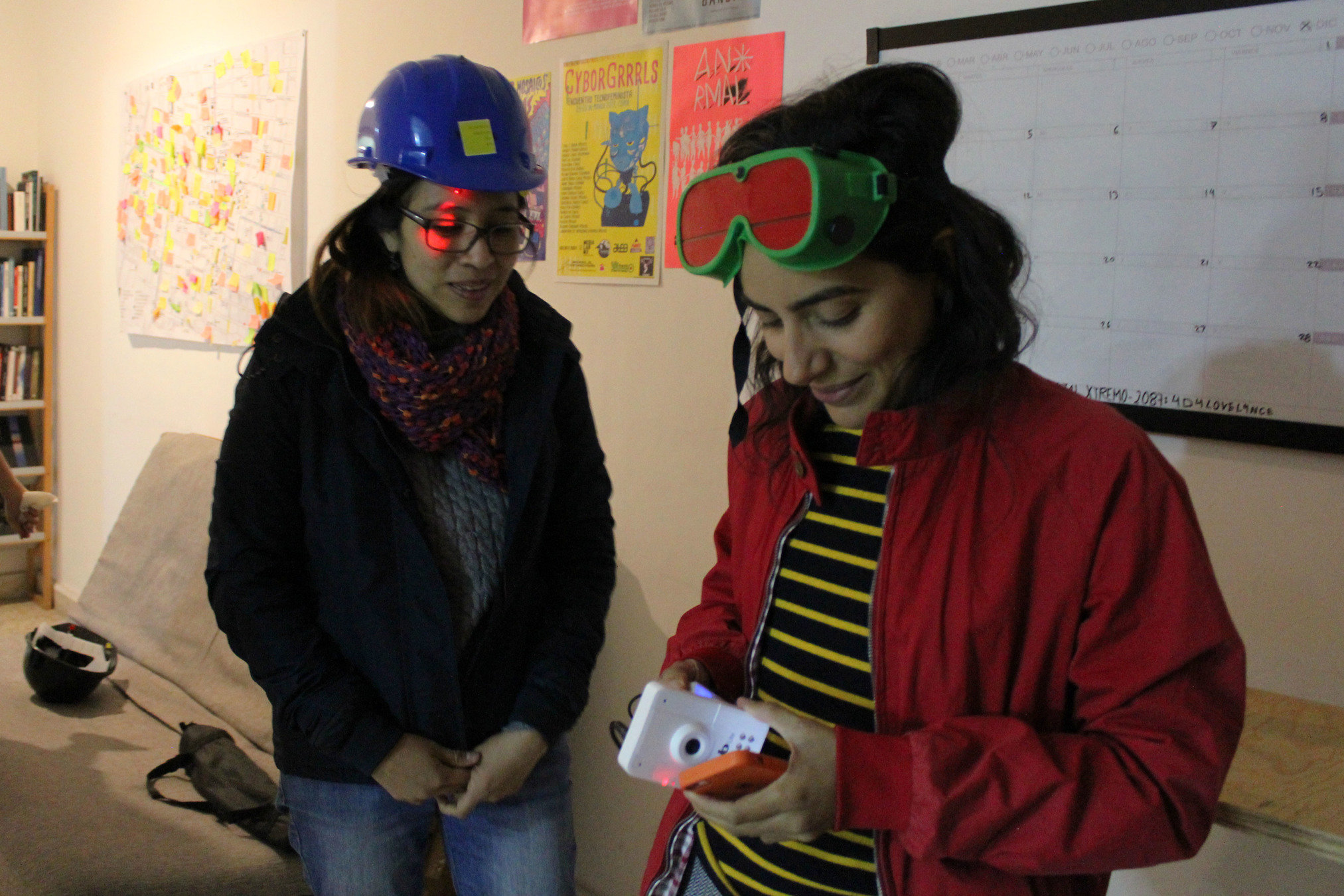
4. Create knowledge trough material engagement
Sara Lana, Puntos Ciegos

5. Decenter institutions from development
Pia Vazquez, Imago: Practices to observe the city
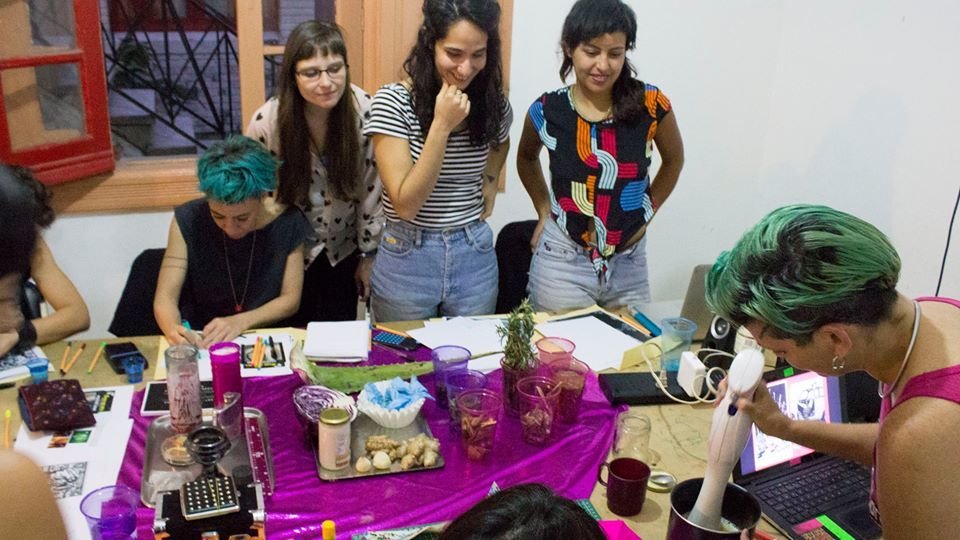
6. Displace common agents of development.
Cyborggrls y Gynepunk
- How can different systems of knowledge be assimilated or translated between each other?
- How do we question the authority of existing disciplines?
- How do we negotiate the existing hierarchy between disciplines?
- How do we challenge the notion of expertise?
- Where do we situate the sites or places of interdiscipline?